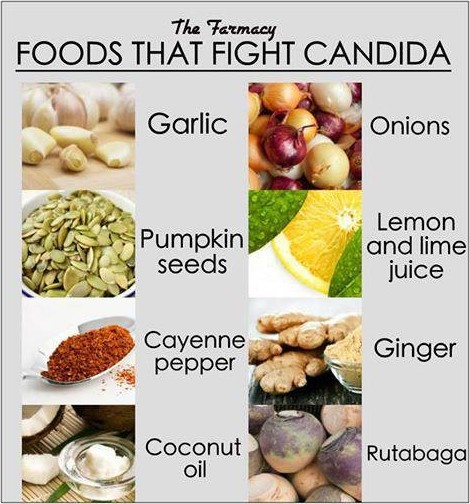

In the doctor's office patients who complain of yeast-related symptoms are not always taken
seriously. Frequently doctors attribute their problems to stress or imagination. It wasn't until
Dr. Orian Truss, an allergist from Birmingham, Alabama, connected fungus-related diseases to a
large number of other disease symptoms that yeast's effect on the body was clearly understood.
Yeast sufferers with their many symptoms aren't hallucinating after all. Dr. Truss's research has
demonstrated yeast influences the body in many ways.
How Yeast Affects the Body
As yeast fights for its survival, the toxins it gives off causes the red blood cell walls to
stiffen. Consequently, they are unable to slip into tiny capillaries and supply oxygen to all body
tissues and organs. Yeast toxins also cause white blood cells to become stiff and brittle, reducing
their ability to absorb invading organisms. With a weak immune system, yeast can now attack a
variety of body sites. However, this fungus seems to favor the urinary tact, prostate gland,
gastrointestinal tract, mouth (thrush) and vagina.

How Yeast Grows
Lack of Proper Nutrition. When nutrition is poor, yeast tends to get a stronger hold on the body, especially when refined sugar is part of the diet.
If you've ever made bread, you've seen the bubbling action of yeast and sugar in warm water. Yeast
seems to flourish on sugar, breaking it down quickly. Large amounts of highly refined foods,
particularly sugar, as part of your diet tend to replace other important nutrients. Without these
nutrients the immune system is unable to keep infection or yeast from dominating your body.
Antibiotics and Other Drugs.
The colon's "friendly" bacteria, lactobacillus acidophilus, is
destroyed by antibiotics. Acidophilus produces chemicals that curb yeast growth. When the
friendly bacteria die, yeast takes over. Other drugs can also encourage yeast growth. As an
example, cortisone may hamper the immune system and increase yeast growth.
Knowing If You've Got It
Modern-day diagnostic tools are not reliable when it comes to detecting yeast overgrowth. Cultures,
for example, only work to recognize organisms within the body that should not be there. Likewise,
tests for antibodies only help identify invading organisms for which the human body has developed
an antibody. Since each of us is supposed to have some yeast and yeast antibodies, these two
methods of testing are useless.
The best diagnostic tool to pinpoint yeast problems is a yeast treatment program. If you experience a noticeable improvement, you have candidiasis and would benefit from ongoing
treatment. If you see no change after six to eight weeks on the program, you may be having health
problems that stem from other causes.
And Bacillus Coagulants
Contains 3 billion CFU (colony forming units) of Bacillus coagulans per serving plus prebiotic fiber  |
|